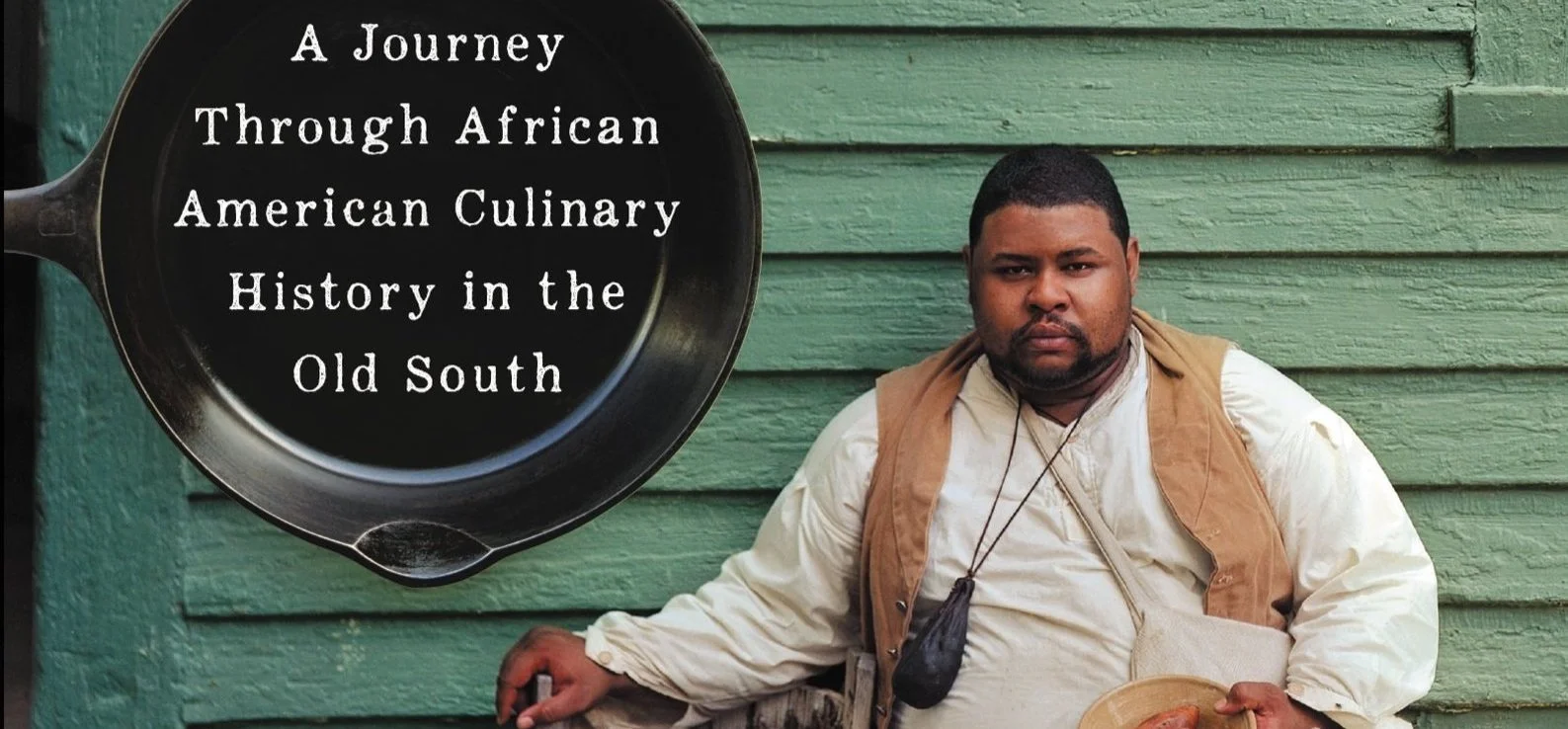Michael Twitty’s The Cooking Gene
Discover > Product Recs > Michael Twitty’s The Cooking Gene
Known for his work as an educator, author, chef, and culinary historian, Michael W. Twitty has many strings to his bow. Winner of the Cookbook of the Year James Beard Award in 2018, for The Cooking Gene, and touted in “Fifty People Who Are Changing the South” by Southern Living, Twitty has received numerous awards from Saveur for the best Food and Culture Blog.
What’s more, Twitty is a TED fellow and speaker, a Smith fellow with the Southern Foodways Alliance, and the very first Revolutionary in Residence at the Colonial Williamsburg Foundation.
Twitty has been passionate about discovering the deeper connections of ancestral food history with slavery and freedom, spanning from West and Central Africa all the way to the Americas. This endeavor led to The Southern Discomfort Tour in 2012, where Twitty journeyed from Maryland to Louisiana, visiting the sites of his ancestors, living relatives, plantation fields, and graveyards while continuing his research and giving cooking demos, all whilst educating along the way.
For years, Twitty has nurtured his blog Afroculinaria to draw attention to the insightful ways in which African American history in this country has shaped modern-day culture, and specifically Southern foodways. Unfortunately, going through his blog can make one feel as if Twitty is providing us with a kind of remedial education – a series of lessons that should have been covered in schools.
His research and experiences have also culminated in a brilliant book of over 400 pages, The Cooking Gene: A Journey Through African American Culinary History in the Old South.
To describe The Cooking Gene as merely a well-researched cookbook is an understatement. Instead, the book offers a deep dive into an ocean of historical, biological, and sociological information that connects food with people. In his book, Twitty shares his experiences with food as an infant, as well as recounting special moments with his family, as well as the history of his forefathers.
During his trips exploring the South, Twitty uncovered many neglected and underappreciated historical facts. He writes: “To my fellow African Americans—we complain a lot when sites and shows and movies and the like don’t reflect our history or experience. We want them to tell it like it is… but many of my colleagues have complained that so often we don’t empower each other to tell our own stories.”
Further, Twitty explains, “Nothing lacks importance; no detail is to be left behind. Our stories and our parents’ and grandparents’ stories—and even beyond to their parents’ and great-grandparents’ stories—are precious in a world where the narrative of who we are and were usually lasts no more than three generations.”
With these words, Twitty gives readers a peek into the plantation kitchen, the fields themselves, and the slave ships which hauled slaves into the Americas. In a message to future generations, the book damns the dreadful nature of slavery and celebrates the resilience of those who survived it.
Twitty intricately explains the cultivation, planting, and harvesting of crops such as tobacco, corn, and rice. He also educates us on present-day terms for particular foods -- the term for okra originated from the Igbo okwuru, gumbo from kingumbo, and yam from the Wolof nyambi.
In The Cooking Gene, Twitty refers to the Old South as “a place where people use food to tell themselves who they are. It is also a fraught place where food disputes pile atop polemics of history, all pointing to the ugly truth of slavery.”
The book is a great place to start for readers who would like to learn more about the intense and systematic effect of slavery on American culture.
Twitty’s ending statements reflect his thoughts, as he gives us options of what we can do with this information. He concludes, “We can choose to acknowledge the presence of history, economics, class, cultural forces, and the idea of race in shaping our experience, or we can languish in circuitous arguments over what it all means and get nowhere. I present my journey to you as a means out of the whirlwind, an attempt to tell as much truth as time will allow.”
Looking for fresh seafood accross Texas?


